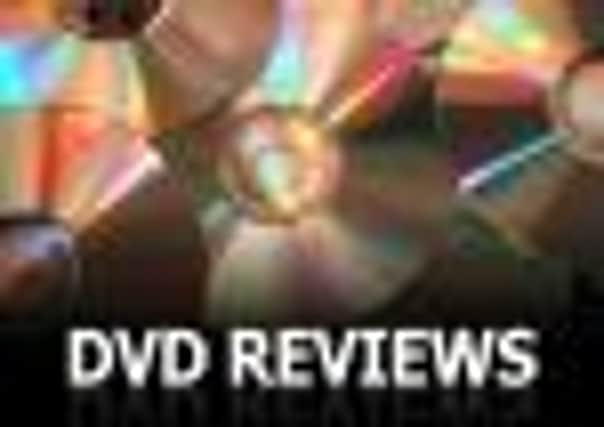Geoff Cox’s DVD guide: Drive, The Debt, Crazy Stupid Love, Melancholia, The Whistleblower


And two of Mr Gosling’s movies released on DVD this week are worth a gander.
He’s certainly convincing as a nameless stunt performer who uses his skills to moonlight as a getaway driver in stylish revenge drama DRIVE (18: Icon).
Advertisement
Hide AdAdvertisement
Hide AdIts Danish director Nicolas Winding Refn was previously at the helm for Bronson, the excellent biopic of infamous Luton-born prisoner Charles Bronson, and his latest offering is also compellingly nasty. But for those with a stomach for it, Drive is a lot of fun.
When Gosling’s attractive married neighbour (Carey Mulligan) and her little boy are menaced by gangsters, he acts to protect them, which leads to bloody warfare with the local criminal fraternity.
Refn punctuates glittering night-time skyscraper shots and a synth pop soundtrack with jolts of extreme violence.
Ron (Hellboy) Perlman and Albert Brooks are on great form as the terrifying heavies, but it’s the strong, silent Gosling who anchors the film.
Advertisement
Hide AdAdvertisement
Hide AdGosling’s womaniser is likeable and funny in CRAZY, STUPID, LOVE (12: Warner), which many critics reckon was the best rom-com of 2011. I don’t know about that, but there’s certainly more than enough charm and humour to sweep the ladies off their feet.
Steve Carell is a regular middle-aged guy who begins the film happily married, yet only until the end of the witty opening scene when his wife (Julianne Moore) asks for a divorce.
He then meets bar-room regular Gosling, who gives his older drinking buddy a crash course in being single.
And when the wholesome Emma Stone proves immune to his charms, you root for Gosling to get the girl.
Advertisement
Hide AdAdvertisement
Hide AdUnfortunately, another subplot involving Carell’s teenage son and his babysitter slows the pace and a contrived finale undermines the realism.
> THE DEBT (15: Universal) is an entertaining, if unspectacular, addition to the recent spate of retro spy films.
It’s elevated above the ordinary by the sheer calibre of the cast, including Helen Mirren, Tom Wilkinson and Sam Worthington.
In 1966, three members of Israeli secret service Mossad are sent in to East Berlin to kidnap or kill a notorious Nazi war criminal, known as the ‘Surgeon of Birkenau’. But the mission is bungled and 30 years later the trio, now retired and feted back home as heroes, get a surprise chance to make amends.
Advertisement
Hide AdAdvertisement
Hide AdAs the film flits back and forth in time between botch-up and mop-up, secrets that were buried during the assignment come back to haunt them.
> A curious hybrid of Hollywood sci-fi and European art-house, MELANCHOLIA (15: Artificial Eye) earned Kirsten Dunst the Best Actress prize at the Cannes Film Festival for her performance as a bride on the verge of a nervous breakdown as she prepares for her high-society wedding at her sister’s mansion.
An apocalyptic montage provides an arresting opening and the story is then split between the nuptials and the aftermath.
Dunst wrestles with her inner demons and alienates members of her family with her increasingly self-destructive behaviour.
Advertisement
Hide AdAdvertisement
Hide AdMeanwhile, Earth faces the possibility of a devastating collision with a previously unknown planet named Melancholia.
Look out for droll turns by John Hurt and Charlotte Rampling as the sisters’ bickering parents and Udo Kier as a surly wedding planner in a film that boasts ravishing visuals, although the action lacks the human drama to match them.
> Gruelling biopic THE WHISTLEBLOWER (15: High Fliers) follows Kathy Bolkovac (Rachel Weisz), a Nebraska cop who joined the United Nations peacekeeping mission in Bosnia in 1999 and uncovered an underground network of underage sex trafficking.
What fires this angry film’s sense of outrage is that a US security firm was complicit in the scandal and relied on local police, diplomats and UN officials to turn a blind eye to the rape and violent imprisonment of these teenage girls.
Advertisement
Hide AdAdvertisement
Hide AdWeisz gives a measured performance as the crusading whistleblower, while director Larysa Kondracki, making her feature film debut, shoots the harrowing scenes of abuse and dank dungeons with an unflinching refusal to compromise.
Despite a few rough edges plot-wise, its powerful impact lingers.